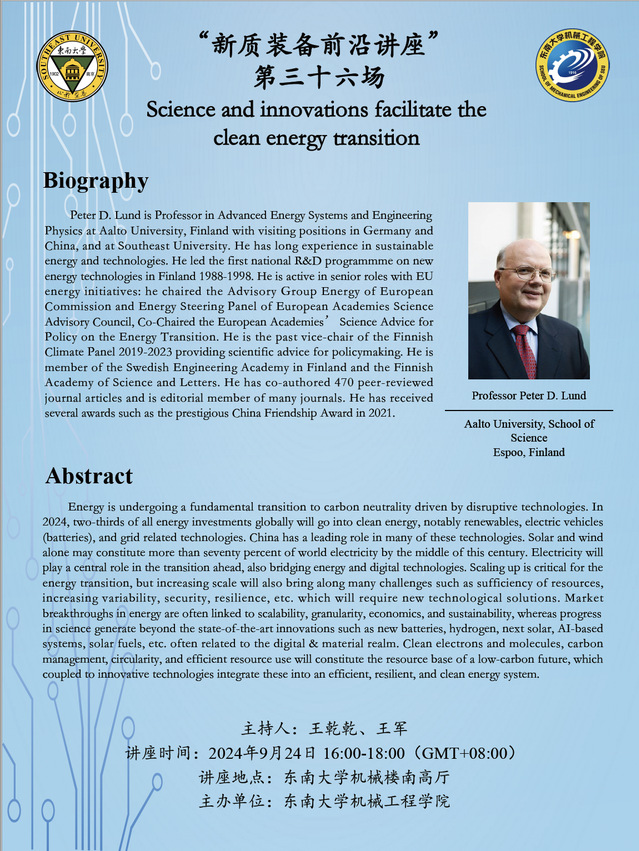Biography
Peter D. Lund is Professor in Advanced Energy Systems and Engineering Physics at Aalto University, Finland with visiting positions in Germany and China, and at Southeast University. He has long experience in sustainable energy and technologies. He led the first national R&D programmme on new energy technologies in Finland 1988-1998. He is active in senior roles with EU energy initiatives: he chaired the Advisory Group Energy of European Commission and Energy Steering Panel of European Academies Science Advisory Council, Co-Chaired the European Academies’ Science Advice for Policy on the Energy Transition. He is the past vice-chair of the Finnish Climate Panel 2019-2023 providing scientific advice for policymaking. He is member of the Swedish Engineering Academy in Finland and the Finnish Academy of Science and Letters. He has co-authored 470 peer-reviewed journal articles and is editorial member of many journals. He has received several awards such as the prestigious China Friendship Award in 2021.
Abstract
Energy is undergoing a fundamental transition to carbon neutrality driven by disruptive technologies. In 2024, two-thirds of all energy investments globally will go into clean energy, notably renewables, electric vehicles (batteries), and grid related technologies. China has a leading role in many of these technologies. Solar and wind alone may constitute more than seventy percent of world electricity by the middle of this century. Electricity will play a central role in the transition ahead, also bridging energy and digital technologies. Scaling up is critical for the energy transition, but increasing scale will also bring along many challenges such as sufficiency of resources, increasing variability, security, resilience, etc. which will require new technological solutions. Market breakthroughs in energy are often linked to scalability, granularity, economics, and sustainability, whereas progress in science generate beyond the state-of-the-art innovations such as new batteries, hydrogen, next solar, AI-based systems, solar fuels, etc. often related to the digital & material realm. Clean electrons and molecules, carbon management, circularity, and efficient resource use will constitute the resource base of a low-carbon future, which coupled to innovative technologies integrate these into an efficient, resilient, and clean energy system.
主持人:王乾乾、王军
讲座时间:2024年9月24日 16:00-18:00(GMT+08:00)
讲座地点:东南大学机械楼南高厅
主办单位:江南网页版




